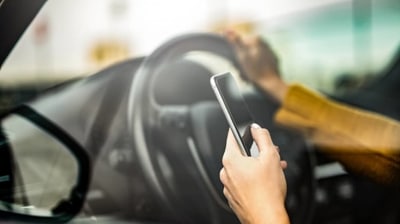How Can I Prove Distracted Driving in a Crash?
After you have checked on everyone involved in the crash, start looking for evidence, if you are able. If the other driver is still in their vehicle, do they have a cell phone in their hands or did you see a cell phone in their hands before the accident? Taking pictures can provide potential evidence if you pursue legal action down the line.
Of course, a cell phone is not the only way a person may be distracted. Look for other items that could have been distracting for the other driver in the vehicle, such as makeup, food, or anything else that may be near the driver’s seat.
If you are unable to take photographic evidence after a crash, and someone else is nearby, ask them to do so. You want to make sure you have any possible evidence that could help your case if you have to go to court.
Cell Phone Records May Be Able to Prove a Crash
If the other driver was on their cell phone, whether that be texting or on a call, those records may be subpoenaed for a court case. Having that information could be critical if you go to court. Taking such steps is complicated and requires the experience of a seasoned legal professional.
If you need help getting cell phone records, or any other assistance proving you were harmed by a distracted driver, you need a qualified attorney in your corner. That’s where Lanier Law Group, P.A. comes into play. Our office knows the questions to ask in cases like this. Call our firm today at 919-342-1368 to see how we can help you.

